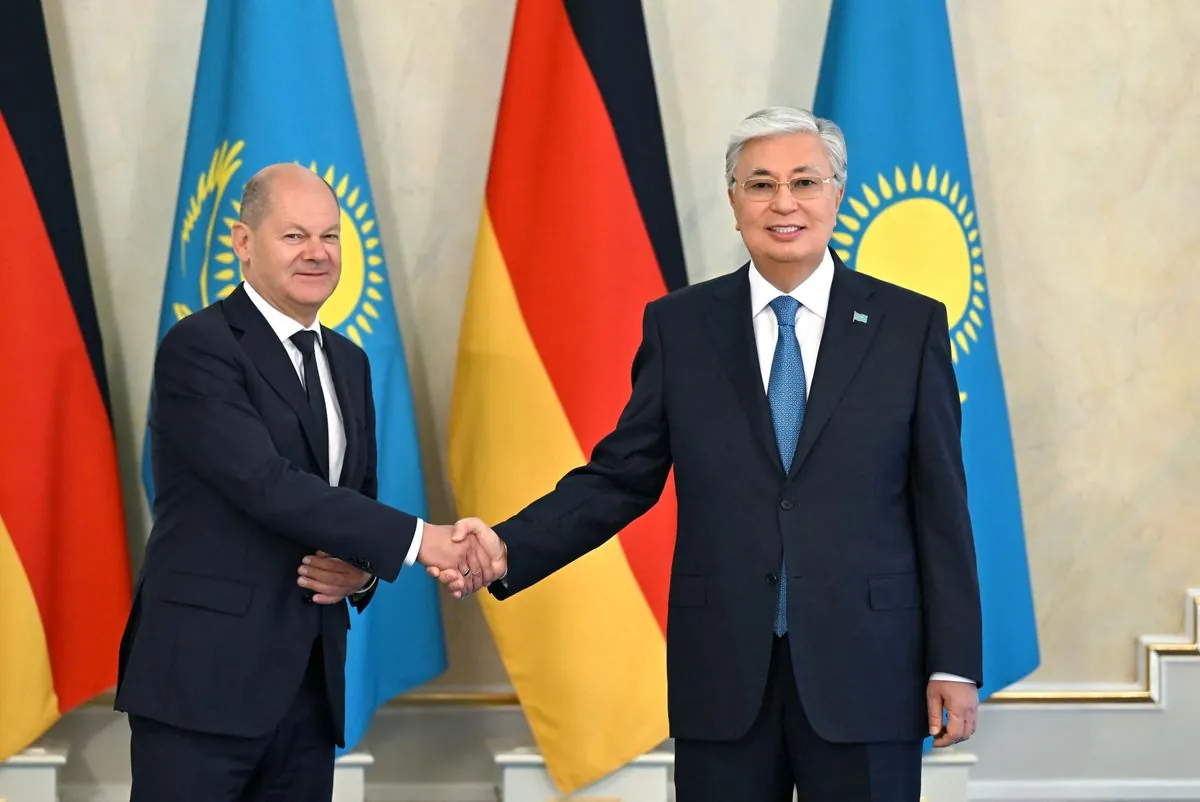Germany Seeks Enhanced Trade with Kazakhstan Amid Sanctions Concerns
German Chancellor Olaf Scholz visits Kazakhstan to boost trade relations while addressing EU sanctions on Russia. The focus is on raw materials and economic diversification in Central Asia.

German Chancellor Olaf Scholz visited Kazakhstan on September 16, 2024, aiming to strengthen economic ties between the two nations. This diplomatic mission highlights Germany's efforts to diversify its trade partnerships, particularly in the realm of raw materials.
Scholz emphasized the importance of expanding trade relations while ensuring compliance with EU sanctions on Russia. He stated, "We are committed to preventing any misuse of our trade to circumvent sanctions." This cautious approach stems from concerns that some Russian businesses may be using neighboring countries to procure goods banned by Western sanctions.
Kazakhstan, the world's largest landlocked country, has significant potential as a trade partner for Germany, the fourth-largest economy globally. The Central Asian nation boasts vast reserves of oil, rare earth elements, and lithium, all of which are crucial for Germany's industrial and technological sectors.
Kassym-Jomart Tokayev, the President of Kazakhstan, expressed mutual interest in increasing trade across various sectors. Both leaders highlighted the benefits of economic diversification, with Scholz noting, "This exchange allows us to strengthen our economies and enhance their resilience."
A concrete example of this burgeoning partnership is Kazakhstan's role in supplying crude oil to Germany's Schwedt refinery, filling the void left by Russia's absence as a supplier. This development is particularly significant given Germany's efforts to phase out nuclear power by the end of 2024, increasing its reliance on alternative energy sources.
The visit also showcased broader Western diplomatic efforts in Central Asia, a region traditionally under Russian influence. Scholz's meeting with leaders from all five Central Asian republics underscores this shift in geopolitical dynamics.
"Both sides benefit from this exchange because it allows us to diversify our economies and make them more resilient."
This diplomatic initiative comes at a time when Russia has threatened to limit sales of metals like titanium to countries it deems "unfriendly." Such moves further underscore the importance of Germany's efforts to secure alternative supply chains for critical resources.
Kazakhstan's strategic position along the Trans-Caspian International Transport Route, also known as the "Middle Corridor," offers an additional advantage for trade between Europe and Asia while bypassing Russia. This route could play a crucial role in future trade relations between Germany and Central Asian nations.
As Germany continues to lead in renewable energy technology and Kazakhstan remains a major player in the global uranium market, the potential for mutually beneficial cooperation extends beyond traditional resource extraction. This evolving partnership may set a precedent for future economic relationships between Western European and Central Asian nations.


































